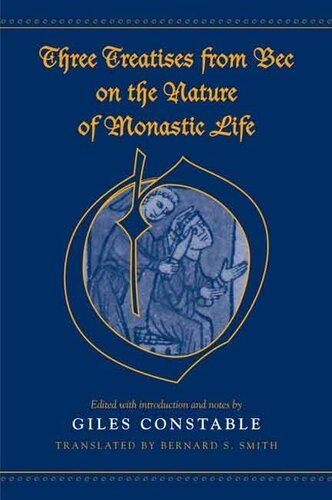

Most ebook files are in PDF format, so you can easily read them using various software such as Foxit Reader or directly on the Google Chrome browser.
Some ebook files are released by publishers in other formats such as .awz, .mobi, .epub, .fb2, etc. You may need to install specific software to read these formats on mobile/PC, such as Calibre.
Please read the tutorial at this link: https://ebookbell.com/faq
We offer FREE conversion to the popular formats you request; however, this may take some time. Therefore, right after payment, please email us, and we will try to provide the service as quickly as possible.
For some exceptional file formats or broken links (if any), please refrain from opening any disputes. Instead, email us first, and we will try to assist within a maximum of 6 hours.
EbookBell Team

5.0
40 reviewsThe abbey of Bec was founded in the eleventh century and was one of the best-known and most influential monasteries in Normandy. Celebrated for its high standard of religious life and its intellectual activity, Bec also had an exceptional degree of institutional independence.
The three treatises collected and translated in this volume - Tractatus de professionibus monachorum ('The Profession of Monks'), De professionibus abbatum ('The Profession of Abbots'), and De libertate Beccensis monasterii ('On the Liberty of the Monastery of Bec') - are a striking statement of the position of Bec in relation to episcopal and ducal (later royal) authorities. Little is known about the anonymous author of these works except that he was a twelfth-century monk with an attachment to Augustine and Gregory the Great, and that he had considerable knowledge of canon law. His purpose in writing these treatises was to assert and justify the privileges of Bec at a time when many bishops were reacting against monastic freedom, especially with regard to profession.
This volume is an important contribution to understanding not only monasticism in Normandy, but also the conflict between church and state in the eleventh and twelfth centuries.